The EMODnet Open Conference took place virtually from 14 to 16 June 2021. Bringing together data providers, users and stakeholders from Europe and beyond, the conference served to showcase a EMODnet data and products resulting from a decade of progress across the EMODnet network. Through various plenary sessions and panel discussions, the event also aimed to further develop partnerships across Europe and worldwide, and gather feedback from stakeholders and the user community for the next phase of EMODnet leading up to 2030.
EMODnet for Global and EU4OceanObs
A session dedicated to EMODnet and the global marine data landscape took place on 15 June. This included a panel discussion with representatives from EU4OceanObs (EU coordinators of the G7 Future of the Seas and Oceans Initiative (FSOI) and GEO Blue Planet), the Helmholtz Centre for Ocean Research Kiel (GEOMAR), the World Ocean Council, the Centre for the Fourth Industrial Revolution Ocean (C4IR), the Swedish Meteorgocial & Hydological Service (SMHI), and the Interdisciplinary Centre of Marine and Environmental Research – University of Porto (CIIMAR).
GEO Blue Planet EU coordination (EU4OceanObs) as a connector to the GEO Blue Planet and wider GEO
The GEO Blue Planet EU coordinator, Audrey Hasson, highlighted how the EU coordination of GEO Blue Planet, set up in November 2020 through EU4OceanObs, works to connect EMODnet and other EU data infrastructures to GEO Blue Planet and across the wider GEO community.
GEO Blue Planet aims at promoting the sustained development and use of Earth observations for the benefit of society and is the international coordinating body for GEO on matters relating to the Ocean and the coastal zones.
The GEO Blue Planet EU actions promote the use of ocean data and products as well as use cases from EU marine data management infrastructures such as EMODnet and the Copernicus Marine Service at the international level. Making use of GEO Blue Planet’s 7 working groups, the EU coordinator will ensure representation of EU collaborators in each group and encourage uptake of EU marine and coastal data and products to address the different societal challenges addressed by each working group. The EU coordinator currently leads and co-leads the Marine Litter, Sargassum, Fisheries and Oil spill working groups.
How can the G7 FSOI help EMODnet and other EU data infrastructures?
The G7 FSOI actions focus primarily on mobilising support from G7 Members to enhance the collection and sharing of ocean data by fostering agreements across the G7 on common priorities for coordinated joint investment. A successful G7 FSOI should lead to more ocean data being made available to EMODnet.
One example of this is the Biogeochemical Argo programme (BGC Argo), which the G7 made a priority in 2017. Having this ‘G7 Priority Label’ was very effective at prioritising and mobilising national contributions to the BGC Argo array, and today we have initial commitments for more than 850 floats for the next 5 years (from G7 and non-G7 countries) – Maria Hood, EU coordinator of G7 FSOI (EU4OceanObs)
Another G7 FSOI action area is data infrastructure sharing, which includes fostering agreements and commitments to improve interoperability and seamless data assimilation. To take this forward, the G7 FSOI will need to work internationally with groups like IODE OBIS and the Ocean Best Practices System, and in Europe with EMODnet and CMEMS to begin the work of standardising and harmonising the data streams and data archives from this vast and complicated field of ecosystem observations.
The EU coordinator of the G7 FSOI Coordination Centre is the lead for both these scoping activities.
EU4OceanObs through the G7 FSOI, at a high-level, will support increasing the flow of global ocean data for more and better coverage. The GEO Blue Planet component, on the other hand, will focus on the interface between data products and services, and stakeholders to demonstrate use and tailor-services to different users, and also understand gaps in ocean data. This in turn will help the European Commission understand the needs for future ocean data particularly for EU data infrastructures such as EMODnet and the Copernicus Marine Service, which will be used to inform the G7 FSOI Coordination Centre strategy, targeting policy decision-makers and funders of ocean observations.
Useful links
- EMODnet Open Conference 2021 online platform & virtual exhibition (access open until October 2021)
- Copernicus Marine Service – marine.copernicus.eu
- EU marine data infrastructures




